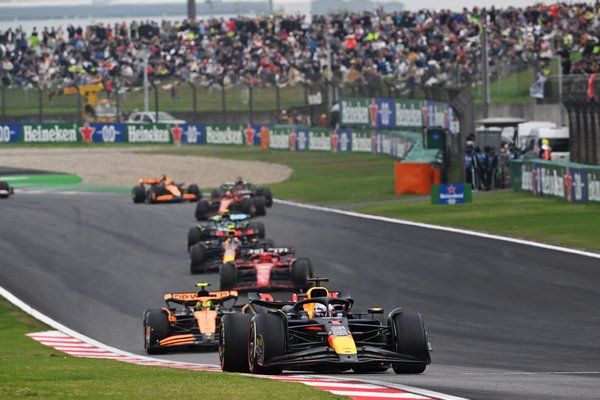Bianchi crash: Russian GP chiefs say F1 safety push can't be rushed
Formula 1 should not feel compelled to implement dramatic changes to safety protocols until full details of Jules Bianchi's accident are known, says Russian Grand Prix consultant Richard Cregan

While Sochi organisers have themselves looked into what lessons they can learn from events at Suzuka last weekend, Cregan says that the sport should not feel pressured to make change for the sake of it.
An FIA investigation into Bianchi's crash is ongoing.
"We have done everything that has been asked, and a bit more in certain places," Cregan told AUTOSPORT about how the Russian GP had responded to the situation.
"I think again it highlights that you can never be happy with safety levels you have.
"The most important thing is that we learn from it and not jump to conclusions - that is the key.
"I know that is easy to say when it is not directly affecting you - and my thoughts are with Jules and his family - but we have to make sure that before this race there is nothing more we can do.
"For the longer term we must look at ways to keep increasing the safety of the sport. When something like that happens it focuses your mind on what can happen, and how dangerous our sport can be.
"Our duty is to try to mitigate as many of those risks as possible and make sure we are making it as safe as possible for everybody involved - and none more so than the drivers.
"You can never lift off on safety, and you have to be looking all the time. You have to keep trying to put scenarios together, with people saying 'that can never happen' - but anything can happen.
"You can never say never. If you put the right circumstances together, unfortunately something like that can happen."
MARSHALS AND RECOVERY VEHICLES UNDER SPOTLIGHT
Cregan said the involvement of the recovery vehicle in the Bianchi accident has highlighted that having highly trained marshals is essential.
"It focuses attention on training, and making sure your teams that are out there recovering cars, or medical crews, are trained to the highest possible standard."

Cregan believes the type of recovery vehicle used is one area for potential improvement, with Russian GP organisers having a similar design to that involved in the Japan GP accident.
Although the theory of using fixed cranes behind barriers like in Monaco would avoid the chances of cars hitting trackside vehicles, there are practical complications involved.
"I still believe that you don't want vehicles out on track except what should be out there - and that is race cars," said Cregan.
"Obviously when you bring something out on the track you are introducing an element of danger by having a solid vehicle.
"We have to look at how we can eliminate that if at all possible. If cranes work, as they do at Monaco, then we have to look at them. We can never stop improving."
Be part of the Autosport community
Join the conversationShare Or Save This Story
Subscribe and access Autosport.com with your ad-blocker.
From Formula 1 to MotoGP we report straight from the paddock because we love our sport, just like you. In order to keep delivering our expert journalism, our website uses advertising. Still, we want to give you the opportunity to enjoy an ad-free and tracker-free website and to continue using your adblocker.


















Top Comments